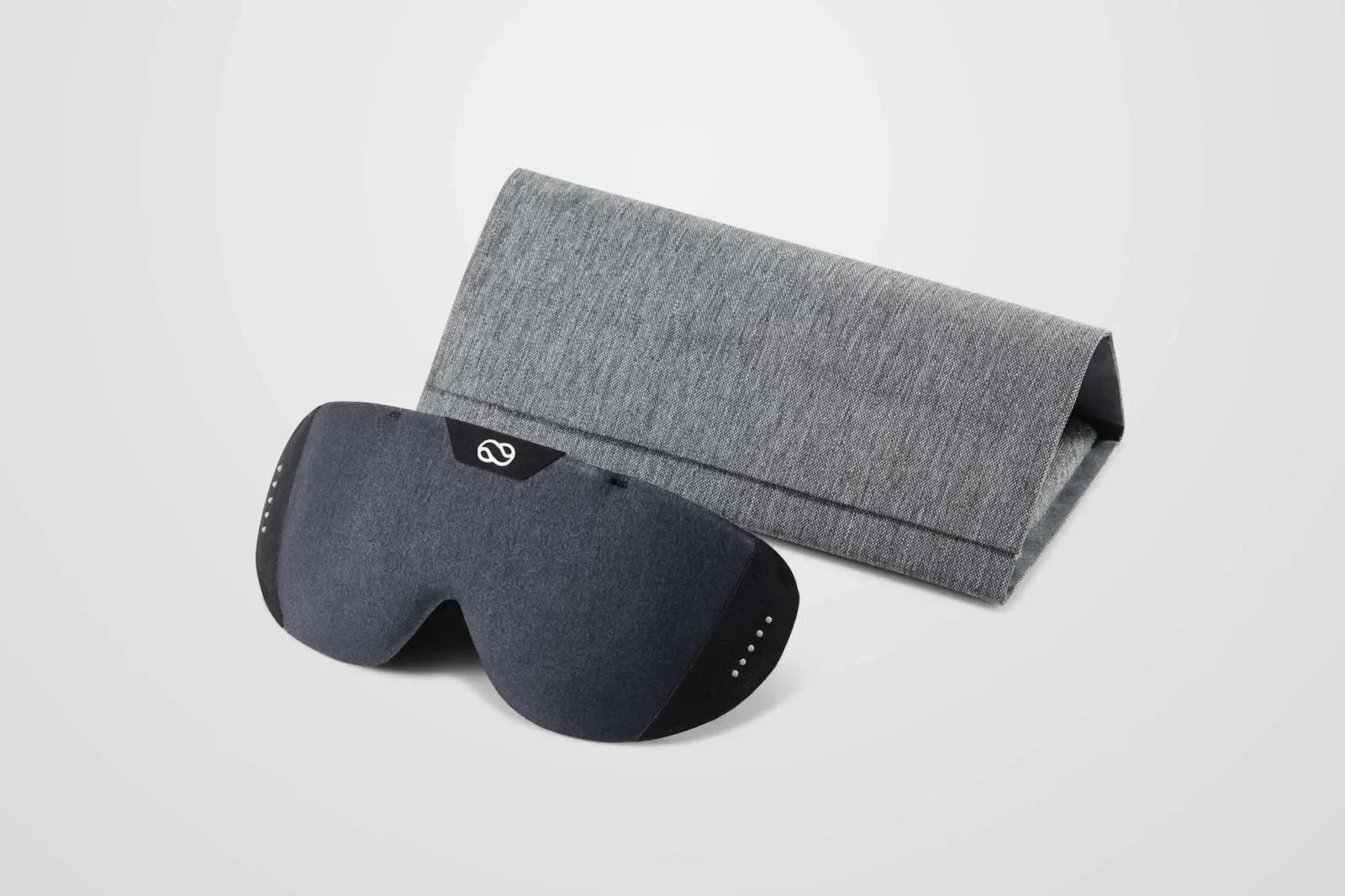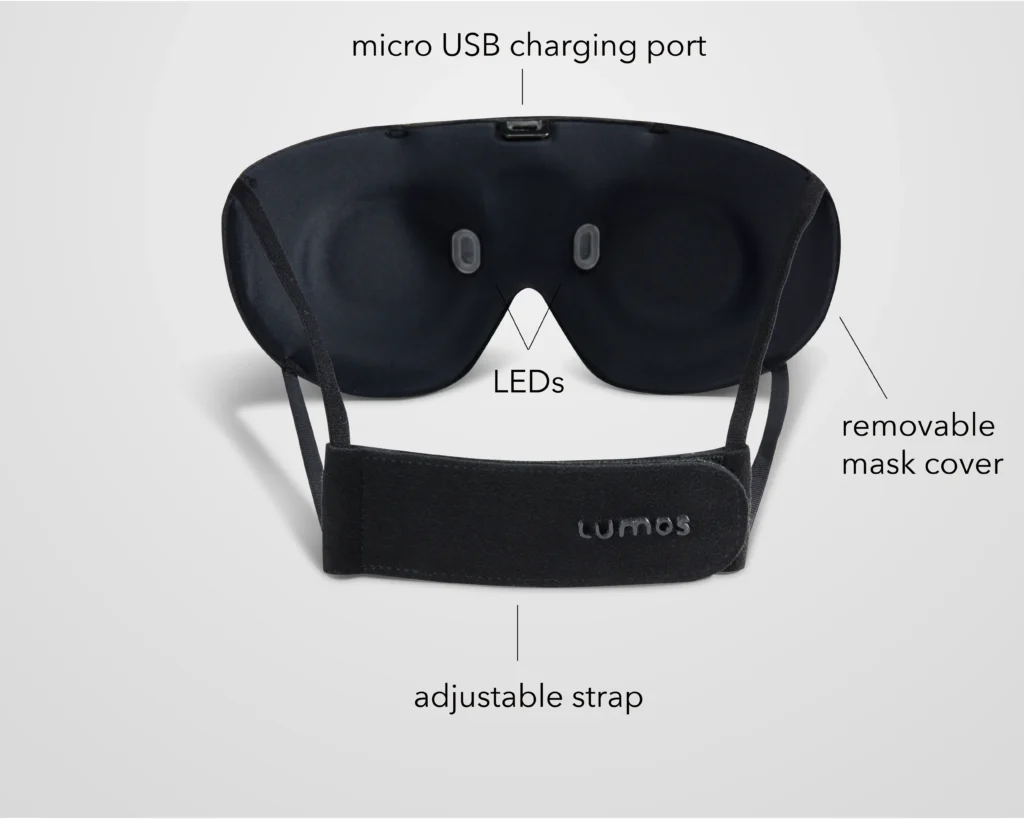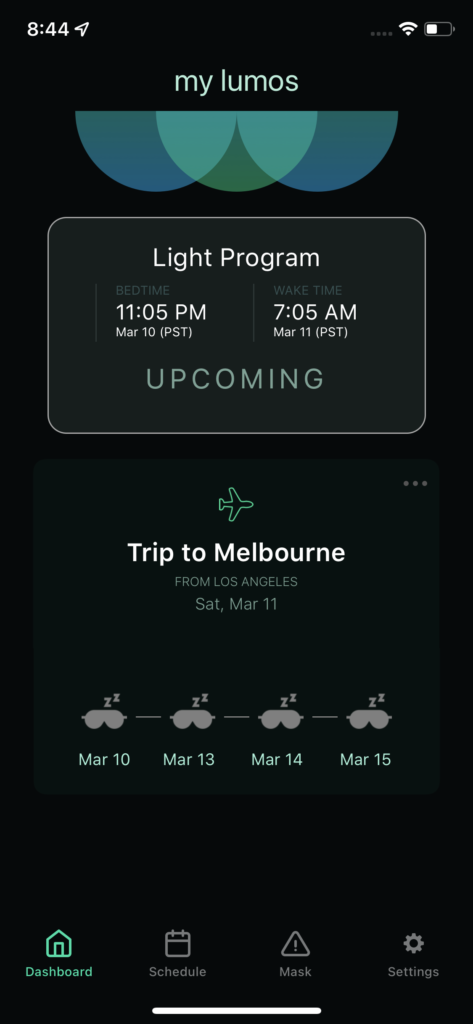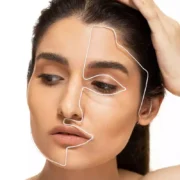Product of the Week: Can the Lumos Mask Help You Get Better Sleep?

The Lumos Mask is an innovative way to combat jet lag or variable sleep routines
All products featured on Athletech News are independently selected by our editors. However, when you buy something through our retail links, we may earn an affiliate commission
Most travelers or workers with variable sleep schedules have intense routines. Blackout curtains, sleep medications and caffeine have been prior solutions to such problems. But what if there were a way to use natural light to solve such sleep issues, even while on the road?
The Lumos Sleep System from LumosTech uses science and engineering to help consumers stick to a personalized sleep routine, even during hectic travel schedules. The mask uses patented light technology to simulate a gentler version of morning sunlight to wake you up, acting as a natural stimulus. The system also allows you to input your current sleep habits and anticipated schedule to design a best-fit program.
Good sleep is dependent on circadian rhythms. Jamie Zeitzer, an associate professor at Stanford University, discovered that short pulses of light delivered while people were asleep could change circadian rhythms. Vanessa Burns and Biquan Luo, co-founders of LumosTech, came across Zeitzer’s research and licensed it for a sleep mask. The Lumos Mask delivers 3-millisecond flashes of light to shift your internal clock three to four hours while you sleep, as pulsing light is more effective than constant light for shifting your schedule.
Athletech News put the Lumos Mask to the test for several months to see how the product fared in different sleep situations.
Pros
The mask is soft and doesn’t get too warm despite its thickness from the hardware. The cover is machine washable, allowing for the removal of its hardware. Those who sleep on their faces might find the mask too bulky for comfortable sleep. However, as a side sleeper, I found the mask fairly comfortable despite my initial reservations due to its size. The best way to use the mask is while sitting up, which makes it ideal for travel. Because the hardware is at the front of the mask, while leaning against a travel pillow or one’s hand, the bulkiness is less apparent. Another major benefit of the mask is that the straps are adjustable, which prevents it from slipping off one’s face during the night.

Although I have sensitive eyes that water in bright sunlight, I found the light bright but not jarring as a wake-up call. The warm light was reminiscent of sunlight, as opposed to a harsher form of light.
The app is well organized and allows for a lot of precision when entering information about upcoming travel plans or night shift schedules. The app is very centered around personal routines, which one could see as either a positive or a negative, depending on your schedule. Under “Set Schedule,” the options are “Schedule Trip,” “Night Shift,” “Adjust Bedtime” and “Rise & Shine.” For “Schedule Trip,” you can input your flight’s departure and arrival times and locations. It can even take layovers into consideration. For “Night Shift,” it allows you to input the day that you start your shift, how many nights are included in the rotation, and sleep and wake times during a night shift rotation, and during a normal day. For “Adjust Bedtime,” you can change your sleep schedule based on if you want to go to sleep and wake up earlier, or go to sleep and wake up later.

Cons
Because of the Lumos Mask’s hardware, it’s not as flexible and soft as other sleep mask alternatives on the market. There were a few nights when I felt the hardware against my face while lying on my side. However, it does stay put due to the adjustable straps, which helps keep the hardware in place at the front of one’s face.
Many of the app’s options, particularly “Schedule Trip” and “Night Shift” are more time-intensive and complicated. For someone with a long journey or a night shift schedule, the mask might be a great fit. For someone who merely wants to casually use the mask on an overnight flight to wake up after a nap, it may be too complicated. For “Rise & Shine,” you can use a Sunrise Alarm to start your day. This was the most flexible option, since if you already had an alarm pre-set, you could adjust it. However, the app does now allow for a simple naptime wakeup call if you hadn’t already pre-set an alarm.
Final Thoughts
The Lumos Mask is a fantastic sleep solution for the pervasive problem of jetlag and scheduling. I was impressed by its rigorous inputs and algorithm for calculating how best to adjust one’s sleep schedule. The mask seems best for someone with a difficult travel or night shift schedule, like athletes or healthcare workers.



